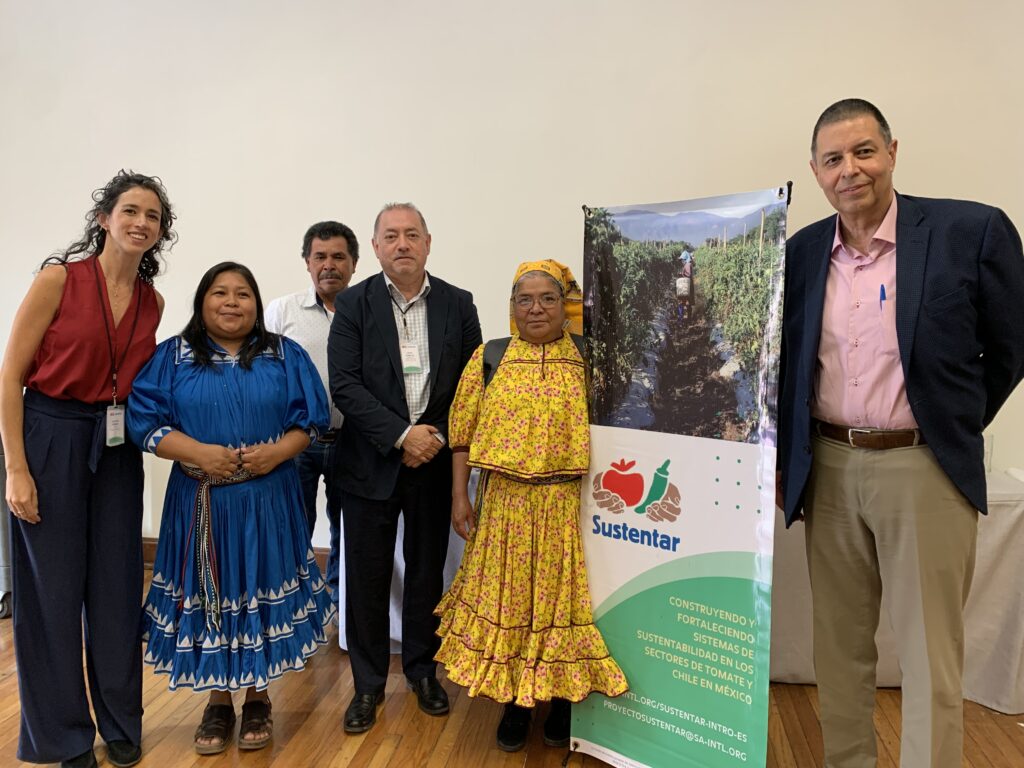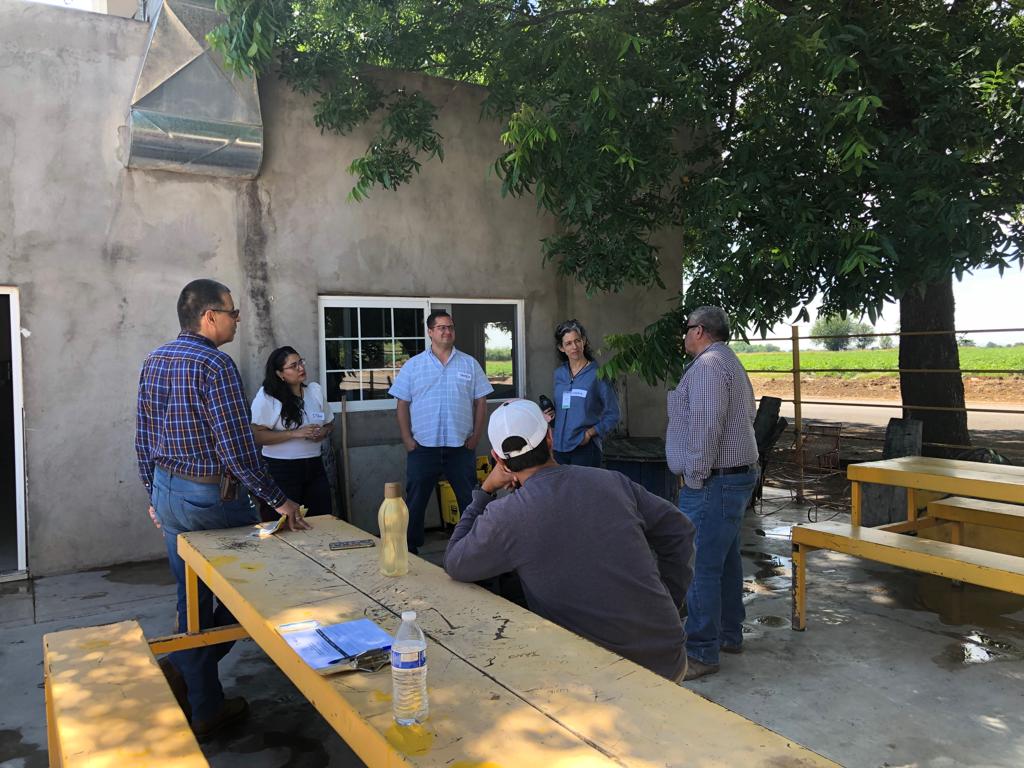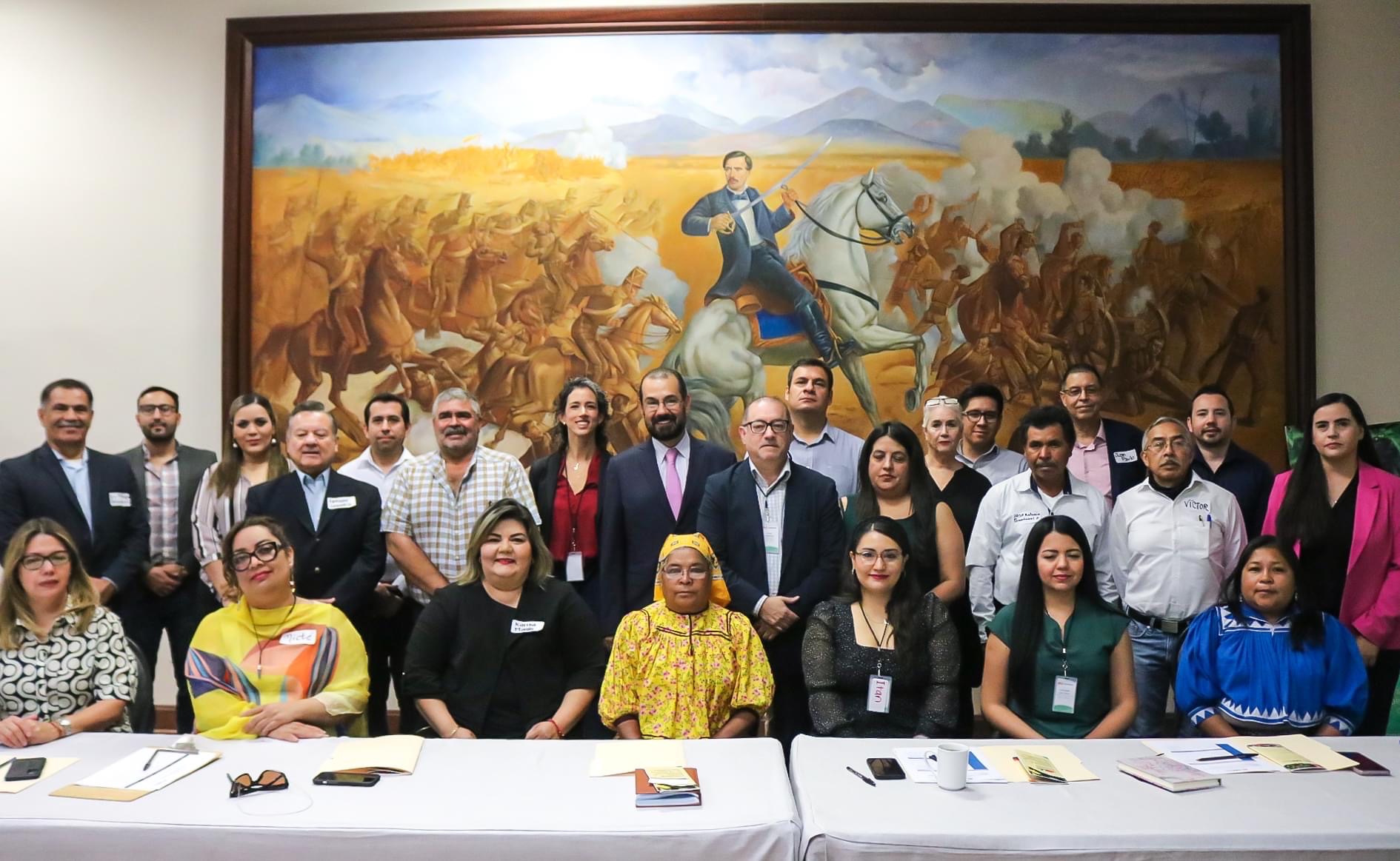On May 16-19, 2023, Proyecto Sustentar held workshops for chile growers, collectors and producers, civil society, and government officials in areas of Chihuahua state. Proyecto Sustentar is a project led by Social Accountability International that seeks to strengthen social compliance and improve working conditions in the chile and tomato industries in Mexico. The project will work with growers and producers, their labor supply chains, and worker communities in Chihuahua, Baja California, and Baja California Sur on these issues over the next four years.
Proyecto Sustentar will conduct trainings and provide technical assistance to help producers and buyers implement and strengthen social compliance systems—a set of policies and processes that enable long-term compliance and ongoing improvement of working conditions. These activities will help producers comply with the 2019 Mexican labor reforms, labor requirements of the USMCA agreement, and expectations of international buyers, improving their preparedness for global export and attractiveness to workers and agricultural day laborers.

At the same time, the project will involve communities, government, and companies to establish robust grievance and remediation mechanisms for workplace violations, including cases of child labor and forced labor. Read more about the project background and objectives.
The workshops in Meoqui, Nuevo Casas Grandes, and Chihuahua City introduced the project design to relevant stakeholders and provided an opportunity for each to share feedback on the proposed outcomes and activities. 36 participants, representing 20 companies and private-sector organizations and 16 national and Chihuahua state governments and civil society organizations, attended the workshops. This included representatives from RES Internacional, Sunset Farms, Rancho El Canelo, Chile Product System, Food Safety Committee of the State of Chihuahua (Comité Estatal de Sanidad Vegetal), National Chamber of the Transformation Industry (CANACINTRA), Secretariat of Labor and Social Welfare (STPS) of the State of Chihuahua, National Council for Educational Promotion (CONAFE), and National Institute of Indigenous People (INPI), to name a few.
In general, the participants showed interest in the topics of the workshop and in actively participating in Proyecto Sustentar, mentioning that it is of utmost importance for their productive sector that the involved obtain up-to-date knowledge in a clear and concise way, as well as that all actors take their responsibility in the process to continue working in accordance with international labor requirements.

Ing. Octavio Flores, president of Chihuahua’s Chile Product System, commented that the project is very necessary to place Chihuahua’s producers among the most competitive in the market by being an example of good labor and agricultural practices. That is why Sistema Producto Chile will be pleased to actively participate in achieving the goals of Proyecto Sustentar.
Diódoro José Siller Argüello, Secretariat of Labour and Social Welfare (STPS), similarly highlighted the importance of working together with Proyecto Sustentar to find solutions to complex problems facing the chile supply chain in Chihuahua, in favor of the producers and the agricultural workers of the state.
To conclude, Claudia Derbez, Sustentar’s Project Director, and Juan Paulo Romero, the Project Coordinator in Chihuahua, in addition to thanking the participation of the attendees, emphasized that the project will be developed gradually so that all elements of the chile supply chain in Chihuahua can reach the objectives of the project and that adaptations will be made to the specific context of each ranch and / or company.
Based on the feedback received at these workshops, and similar workshops coming up in Baja California and Baja California Sur, Proyecto Sustentar will make further refinements to the project design and begin activities in the coming months. The project has a duration of 4.5 years and is funded by the United States Department of Labor. If you are interested in learning more or getting involved, please contact proyectosustentar@sa-intl.org.

Funding is provided by the United States Department of Labor under cooperative agreement number IL-38036-22-75-K. 100% of the total costs of the project is financed with federal funds, for a total of US $5,000,000.